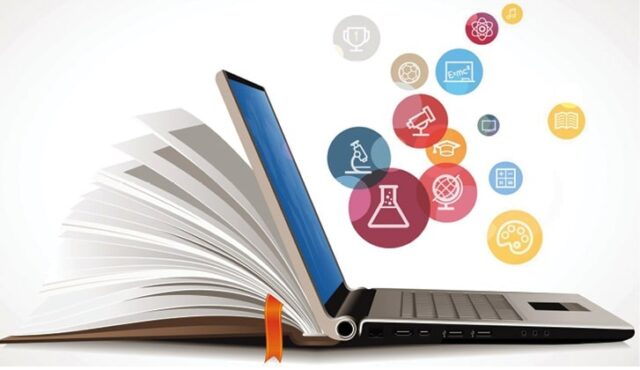As the educational landscape continues to evolve, technology has become an integral part of the learning process. In Agra, where traditional teaching methods have long been the norm, embracing app-based learning can revolutionize the way students engage with their education. Here are several compelling reasons why schools in Agra should adopt app-based learning solutions.

1. Enhancing Student Engagement
Mobile apps can make learning more interactive and enjoyable for students, capturing their attention in ways that traditional methods may not.
Benefits:
- Gamification: Incorporating game-like elements in learning apps can motivate students to participate actively.
- Multimedia Content: Apps can provide videos, animations, and interactive quizzes, catering to various learning styles and making complex topics more accessible.
2. Personalized Learning Experience
Every student learns at their own pace. App-based learning allows for personalized education tailored to individual needs.
Personalization Features:
- Adaptive Learning: Apps can adjust content difficulty based on a student’s performance, providing additional resources where needed.
- Progress Tracking: Teachers can monitor student progress through analytics, allowing them to identify strengths and areas for improvement.
3. Accessibility and Flexibility
App-based learning breaks down barriers to education by providing access to resources anytime, anywhere.
Accessibility Advantages:
- 24/7 Availability: Students can access lessons and materials outside of school hours, promoting self-paced learning.
- Offline Access: Many apps offer offline capabilities, ensuring students can study even without internet connectivity.
4. Fostering Collaboration
Educational apps can facilitate collaboration among students, enhancing their social and teamwork skills.
Collaborative Features:
- Group Projects: Apps can provide tools for students to work together on projects, share ideas, and communicate effectively.
- Discussion Forums: Create platforms for students to discuss topics and ask questions, fostering a sense of community.
5. Enhancing Digital Literacy
In today’s digital world, it is essential for students to develop strong digital literacy skills. Embracing app-based learning prepares students for future challenges.
Digital Literacy Development:
- Technology Familiarity: Regular use of educational apps helps students become comfortable with technology, preparing them for higher education and the workforce.
- Research Skills: Students can learn to find and evaluate information online, a critical skill in the information age.
6. Supporting Diverse Learning Needs
Every student is unique, and some may require additional support to succeed academically. App-based learning can provide tailored resources for diverse learning needs.
Inclusive Features:
- Special Education Tools: Apps can offer resources designed for students with learning disabilities, ensuring they have access to the same quality of education.
- Language Support: Bilingual or multilingual options in apps can assist students who are not native speakers of the primary language of instruction.
7. Encouraging Parent Involvement
Mobile apps can facilitate communication between teachers and parents, promoting a collaborative approach to education.
Parent Engagement Tools:
- Progress Updates: Parents can receive notifications about their child’s progress and achievements, fostering a supportive home environment.
- Event Reminders: Apps can inform parents about school events, meetings, and important announcements, keeping them engaged in their child’s education.
8. Streamlining Administrative Tasks
App-based learning can also benefit teachers and school administrators by simplifying administrative tasks.
Administrative Benefits:
- Grade Tracking: Teachers can easily track and manage student grades, attendance, and assignments through a centralized app.
- Resource Sharing: Apps can serve as a repository for educational materials, lesson plans, and other resources, making it easier for teachers to collaborate and share best practices.
9. Preparing Students for a Globalized Future
In an increasingly interconnected world, equipping students with the skills to thrive globally is essential.
Global Competence:
- Access to Global Resources: Educational apps can connect students with resources from around the world, broadening their perspectives and enhancing their learning experiences.
- Cultural Exchange: Apps can facilitate interactions with peers from different cultures, promoting understanding and collaboration.
Conclusion
Embracing app-based learning in Agra’s schools offers numerous benefits, from enhancing student engagement to fostering collaboration and preparing students for a digital future. As technology continues to shape the educational landscape, schools in Agra have a unique opportunity to leverage mobile apps to enrich the learning experience. By investing in app-based learning solutions, educators can create a more dynamic, inclusive, and effective educational environment that meets the needs of all students and prepares them for success in an increasingly complex world.


No responses yet